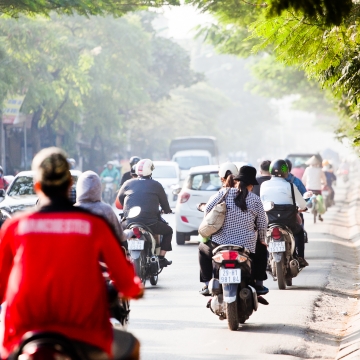The Value of Air Quality and Crime in Chile: A Hedonic Wage Approach
We estimate the implicit prices of the crime rate and airborne pollution in Chile, using spatially compensating price differentials in the housing and labor markets. We evaluate empirically the impact of different estimation strategies for the wage and rent equations, on the economic value of these two amenities. The results show that increments in the crime rate or in air pollution have a negative impact on welfare and that the estimated welfare measures and their variances are sensitive to selection bias, endogenous amenities and clustering effects.
Reducing the healthcare costs of urban air pollution:the South African Experience
This paper investigates and ranks a set of policy and technological interventions intended to reduce such health costs in the high population density areas of South Africa. The paper’s policy messages are that interventions should begin with households and that further industry controls are not yet justifiable in their present forms as these relate to the health care costs of such interventions.
Willingness to Pay for Improved Air Quality in Sweden
The aim of the paper is to quantify individual willingness-to-pay measures of improved air quality in Sweden by using the Contingent Valuation Method (CVM). Such measures are important for policy makers when deciding about public investments and policy instruments in order to regulate environmental impacts, e.g. from road transportation and industry.
Pagination
- Previous page
- Page 22

